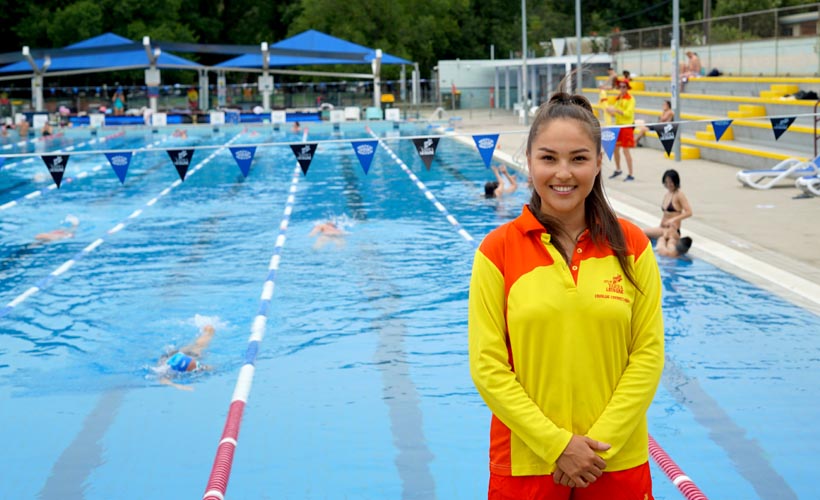
An acute shortage of qualified lifeguards and swimming teachers across Australia is slowing down the aquatic industry’s efforts to rebuild after the Covid-19 pandemic.
Pools and aquatic facilities were badly affected by lockdowns across Australia. Now, as parents seek to get their children back in the pool for classes, a shortage in key staff is limiting the industry’s ability to meet demand.
The CEO of Royal Life Saving Society – Australia, Justin Scarr said many pools were now struggling to find qualified staff to deliver water safety and swimming skills, as well as lifeguard services.
“This is a significant issue for an industry which really struggled to survive the pandemic lockdowns,” Mr Scarr said.
“The good news is that for people who are currently unemployed, or looking at a change in career, there are jobs available right now across Australia.
"The aquatic industry is great for people who need some flexibility – parents returning to the workforce, or people looking for hours that fit around their caring responsibilities.”
A review of job advertisements on Seek this week found 198 job ads for paid pool lifeguards and 153 ads for swim teachers. With many of these ads seeking multiple people, there are more than 500 positions available with an immediate start.
In a Royal Life Saving aquatic industry survey, lifeguards and swim teachers reported that the most rewarding and enjoyable elements of the role were working as part of a team and helping people.
“People often wrongly assume that swimming teachers are the kinds of jobs people do while they study before they move on to something else when they want their career to progress. But there are great career paths available, right through to management roles,” Mr Scarr said.
“There are good-paying, entry-level roles such as swimming and water safety teacher, pool lifeguard, duty manager and community programs officers.
"There are technical roles, including aquatic technical operator, which involves managing an aquatic facility's pools, plant equipment and water quality.
“People often progress through the industry into management roles, developing highly sought-after professional skills along the way.”
Training for an entry-level qualification can be completed in as little as three days. Some States and Territories heavily subsidise courses to make it easier for people to retrain.
To find out more, visit our careers in focus section on our website here.
For media enquiries, please contact Media Key on 0409 420 112 or 03 9769 6488.
